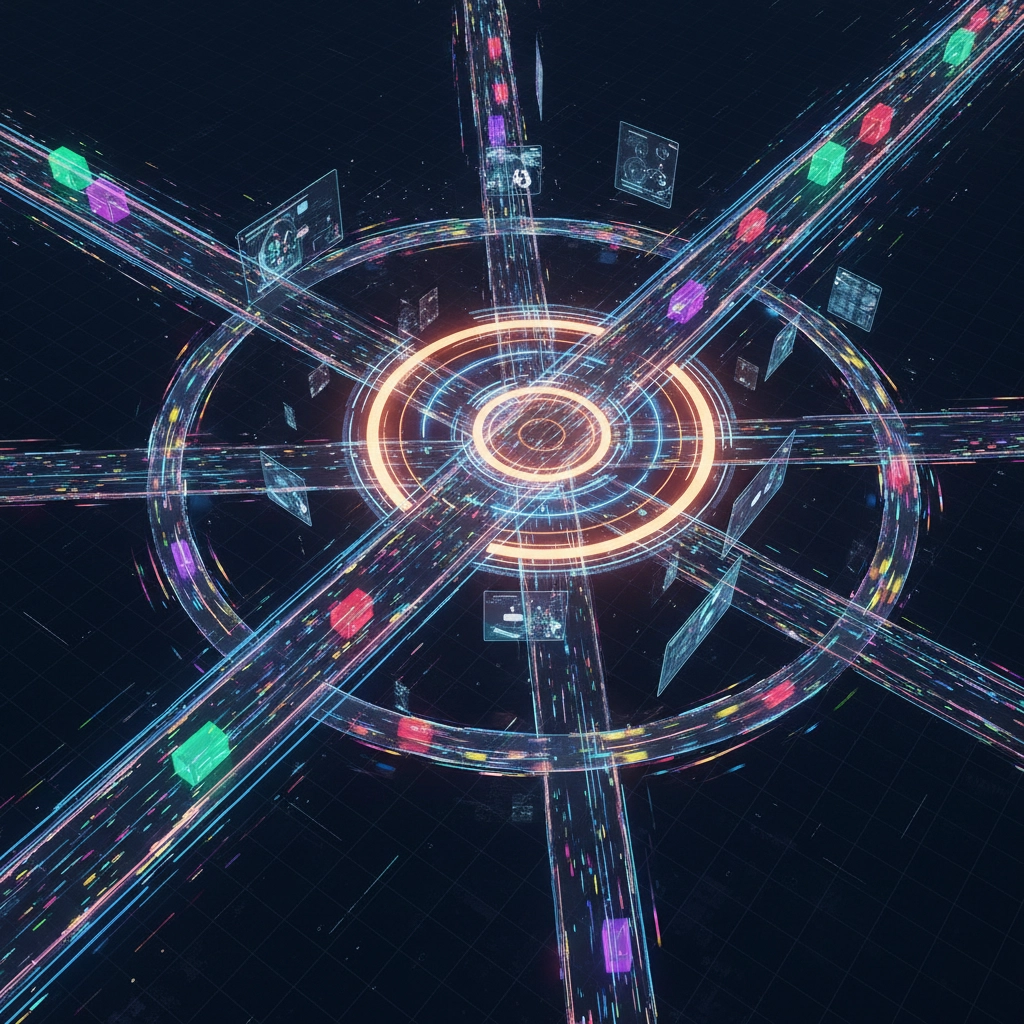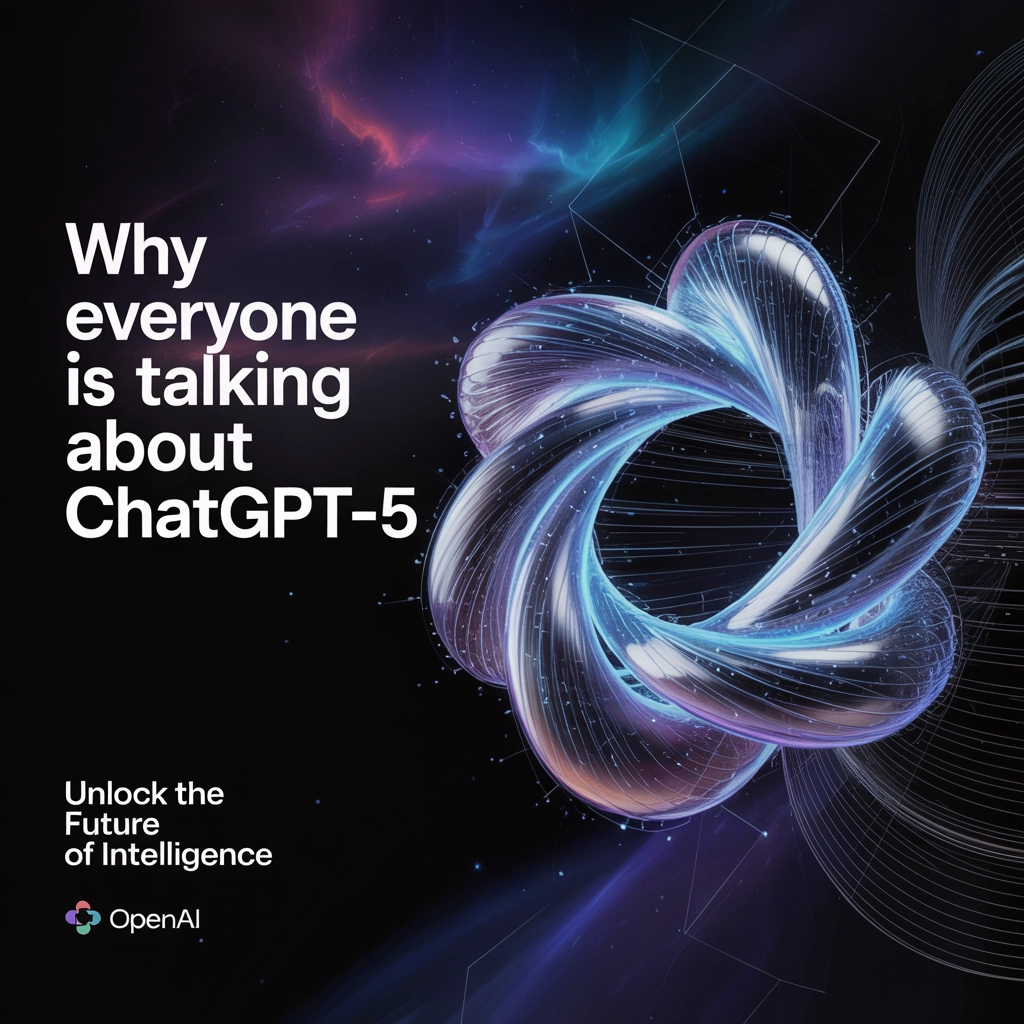Remember when ChatGPT first dropped and everyone lost their minds? Well, that feeling's back. GPT-5 launched about a month ago (August 7th, to be exact), and it's got people buzzing for all the right reasons. But here's the thing – this isn't just another AI update that promises the world and delivers meh results.
This time, it's actually different. And before you roll your eyes, hear me out.
What Makes GPT-5 Actually Different

Let's be real – we've all been burned by AI hype before. Remember when every company was slapping "AI-powered" on their products like it was some magic pixie dust? GPT-5 isn't playing that game.
Instead of just being faster or slightly smarter, GPT-5 fundamentally changes how you interact with AI. The biggest shift? You don't have to think about which model to use anymore. No more choosing between GPT-3.5 for quick stuff, GPT-4 for complex tasks, or GPT-4o for whatever GPT-4o was supposed to do better.
The system figures it out for you. Automatically.
It's like having a smart assistant who knows when to give you a quick answer and when to really think things through. Need help with a simple email? It'll handle that fast. Working on complex code or need deep analysis? It switches gears without you lifting a finger.
The Smart Router That Changes Everything

Here's where things get interesting. GPT-5 uses something called a "router model" that's basically like having a traffic controller for your AI requests. When you ask it something, it instantly decides: "Is this a simple task that needs a quick response, or something complex that requires deeper thinking?"
This matters more than you might think. Before this, you'd either:
- Use a fast model and get mediocre results on hard problems
- Use a powerful model and wait forever for simple stuff
- Constantly switch between models like some kind of AI DJ
Now? The system handles all that decision-making behind the scenes. But here's the really clever part – with 700 million users feeding it data, this router gets smarter every single day. It's learning from every interaction, getting better at knowing when to use its full power and when to keep things light.
My friend Sarah, who runs a marketing agency, put it perfectly: "It's like finally having an assistant who knows when I need a quick brainstorm versus when I need them to really dig deep into strategy. I don't have to manage the AI anymore – it just works."
Why the Delays Actually Helped

Remember all those rumors about GPT-5 being "almost ready" back in early 2025? Yeah, OpenAI was basically pulling a Blizzard – "it's done when it's done." And honestly? Good for them.
The delays weren't because they couldn't figure out how to make it work. They were dealing with some serious security stuff that needed fixing:
• Forged document generation – Making sure it couldn't create fake IDs or official papers
• Fraudulent content – Preventing it from helping with scams or deceptive materials
• Hacking assistance – Ensuring it won't help people break into systems
• Privacy protection – Learning from that messy 2023 incident where user data got exposed
Sam Altman hinted at these challenges back in April, and while everyone was getting impatient, OpenAI was doing the responsible thing. They prioritized safety over speed, which is exactly what you want from a company building tools this powerful.
The result? When GPT-5 finally dropped, it wasn't just more capable – it was more trustworthy. And in a world where AI is becoming part of everything we do, that trust factor is huge.
What This Means for You

Okay, so GPT-5 is smarter and safer. But what does that actually mean for your day-to-day life?
For starters, if you're a developer, this thing is a game-changer. It hit number one on something called SWE-bench, which tests how well AI can solve real GitHub problems. Translation: it's incredibly good at understanding and fixing actual code issues, not just theoretical programming puzzles.
But you don't have to be a coder to benefit. The improved reasoning means better help with:
- Complex research projects that need multiple steps
- Business strategy that requires connecting different ideas
- Creative work that benefits from deeper thinking
- Problem-solving that goes beyond simple Q&A
Plus, since it's available through ChatGPT, Microsoft Copilot, and the OpenAI API, you can access it however you prefer. Whether you're a casual user or building it into your own apps, the options are there.
The best part? You're not just getting a better AI – you're getting an AI that gets better at being better. That router system means every interaction is making the whole thing smarter for everyone.
Think about it: when's the last time you used a tool that actually learned how to serve you better just by you using it? Your phone doesn't get smarter from your usage. Your laptop doesn't adapt to how you work. But GPT-5 does.
So here's my question for you: now that AI can automatically figure out how much thinking power your task needs, what problems are you going to tackle that you've been putting off because they seemed too complex? What would you create if you had an assistant that truly adapted to what you needed, when you needed it?







